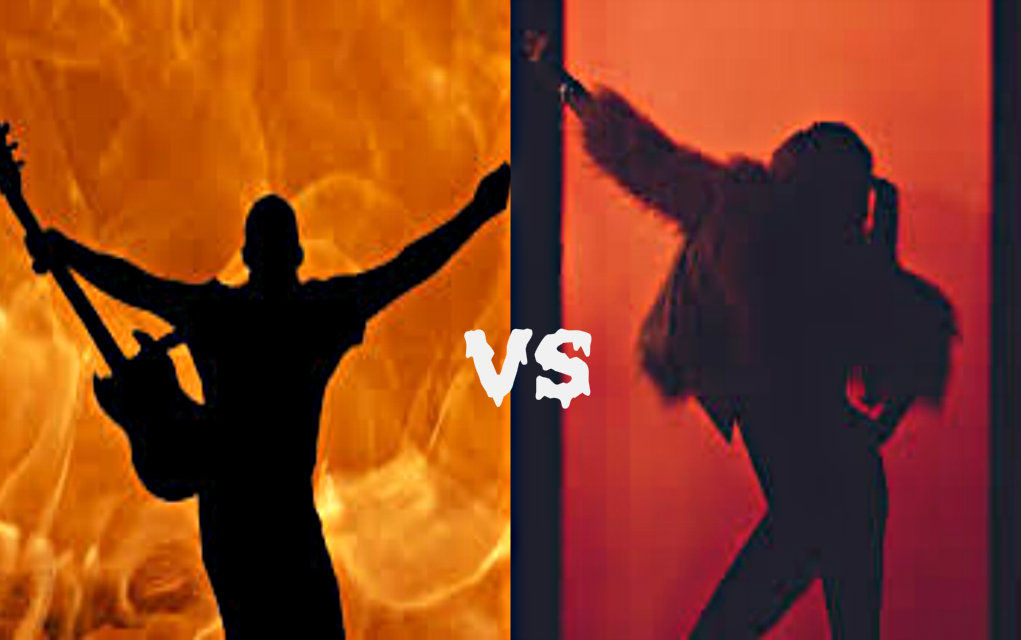It began with a social media post. Greta Valenti, front woman singer of the rock band Well Hung Heart, and its blues adjunct Beaux Gris-Gris and The Apocalypse, posted a response from a UK venue turning down a booking for the act.
The message read, “…no disrespect but it just won’t work for us…For some reason there is a thing about female singers, it must be an old working class thing that still prevails to this day I’m afraid, it sounds crazy but it’s true. I have to be ultra careful when it comes to female singers, sorry.”
One could see this as a venue owner simply trying to make his profits from the shows he books, and semi-politely turning down an artist’s request. Others see it as a modern day incarnation of the He-Man Woman Haters Club.
Either way, this incident is hardly isolated, which poses a number questions to music lovers who want to support their favorite artists….
Can a male dominated profession still be attempting to keep women “in their place,” now seventeen years into the 21st century? Do women artists and female fronted bands find it harder to book gigs than their male counterparts? Does the storied pay gap exist between male and female artists? Are female artists under-represented when it comes awards time? Do the major talent buyers, festivals, do their part in balancing the male/female presence at their events?
…And can sexism in the music industry still be a thing?
We asked women in the roots genre, and took a look at real numbers, to try and shed some light on the topic.
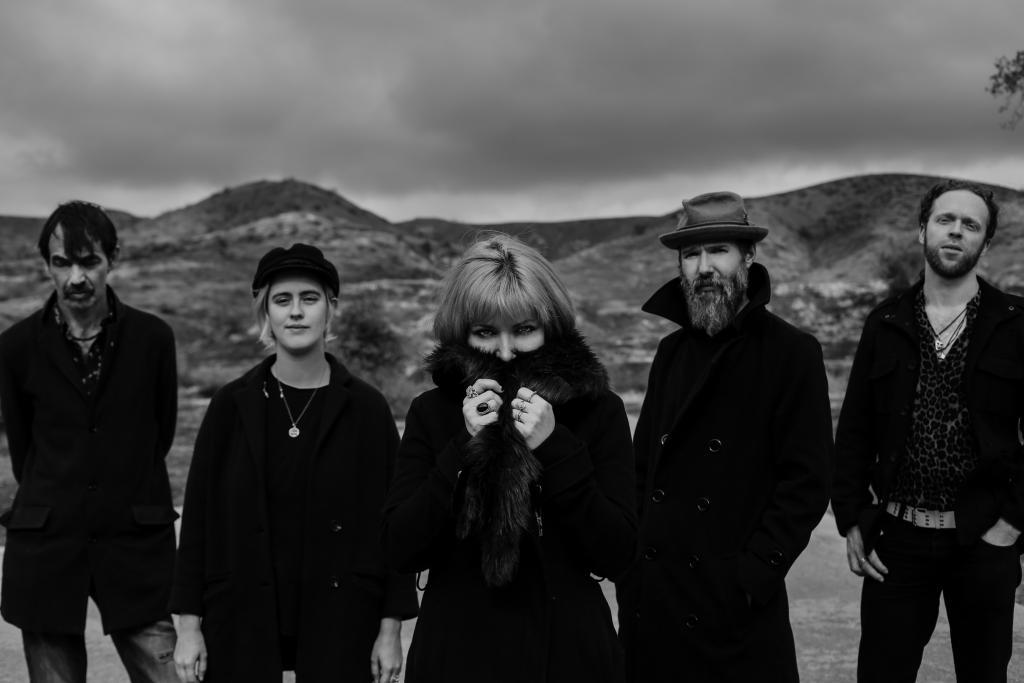
Valenti’s husband and band mate is Robin Davey. A founding member of the British blues band The Hoax, Davey is also an award-winning writer, director and producer with a laundry list of music, film and video credits to his name. Another of his groups had recently performed at the very same venue, sans Valenti.
“I’ve been doing this for 25 years,” Davey said. “I have been rejected many many times, but this type of reaction only happens to my female fronted bands. It is sadly a pre-conceived policy rather than a reaction to an individual project.”
Valenti wasn’t trying to open a can of worms when she posted the response in a public forum, but opportunity rarely strikes when you’re planning it. “We have to speak up. Let’s hope this opens the discussion because really, this is such an insane and silly thing to even have to discuss… but if this is happening regarding simple venue entertainment, just imagine what is happening everywhere else.”
“When I think about it, it just boggles my mind,” Valenti continued. “Our bands have played venues all over the United States and Europe, including some major festivals like Rocklahoma and the Sturgis Motorcycle Rally. I’ve never run across sexism this blatant in booking our acts before.”
Is the “pay gap” that plagues other industries a real phenomena for touring women musicians? We asked.
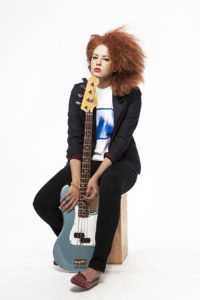
Singer-songwriter, and bassist Cassie Taylor responded to Greta’s post with her own experience. “I had a UK promoter tell me (after a show when I went to collect our fee) ‘I don’t do business with women, please send a man to collect tour money’.” Seriously?
“I don’t normally have that problem,” says another successful recording artist, Danielle Nicole, who tours around the soul, roots, and blues genre. “Maybe I just have a ‘don’t screw with me’ face. But, I can tell you that the 23% pay gap is a very real thing. If I were turned away from gig in the UK just for being a woman, I’d have to ask, ‘and the king of England is who?'”
The problem is not limited to the UK. Michele Seidman, CBW, National Women in Blues, relayed a personal story to us from one artist — names removed per artist request.
An artist had been contacted to play a specific gig at a city-run venue. When the contract arrived, there were two performance dates instead of one. When she called to sort it out, she was told her husband had called and changed the arrangement. The artist was not married, nor had never authorized anyone else to negotiate contracts. The talent buyer couldn’t even produce the man’s name.
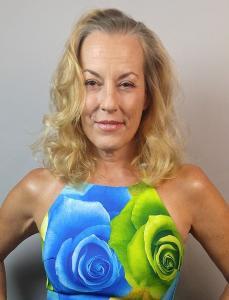
Perhaps this was a communication breakdown in the booking office, but at the very least, it could have been a costly one. “The fact some man, who no one identified, was allowed to speak on my band’s behalf… speaks volumes,” said the artist. “We did honor the one gig and declined to return the following season.”
Seidman had a wealth of information to share regarding women who perform, in the blues world particularly. Like Danielle, she has also experienced the pay gap. “It is very common for a female fronted act to be offered lower pay for the same gig as a male fronted band. I am not sure it is because female artists do not counter the offer, or they counter it badly, or they do not try. Nor can I pin point the blame on the bookers alone.”
Janiva Magness was asked about her personal experiences. “That is a prolonged issue as I see it. But that is less about the business of music and more about a bigger picture of unequal pay for the same jobs being done.”
This naturally leads to the question of whether artist management shares some of the blame…
Predictably, the answer is whether or not you’re using the right person for the job.
“What I have been told by one of the biggest managers in blues, ‘No one wants to hear a woman sing the blues’,” Seidman shared.
“He was wrong, but I have to assume he is not the only one thinking and saying this type of thing. That snowballs to what women get offered for a gig. If the managers and agents don’t think they should be heard, they are not going to fight hard for the women on their rosters. That trickles down to the venue and festival bookers and promoters, as logic dictates.”
On the other hand, strong representation can make large strides in gaining ground for artist equality. In some cases, it already has been for years.

Intrepid Artists International President Rick Booth got into the business in 1990. “At that time it seemed that there was one slot on the table for a female artist at a blues festival. That has certainly changed in recent years.
“I feel that all the female artists on my roster get as much respect, and attention from all of my agents as the male artists when it comes to pricing or anything else. It all comes down to talent. We’re very proud of the women we represent.”
The relationships appear to be paying off, because Intrepid is eager to expand their representation of women. “The bottom line is if you’re talented, and sell tickets, you’re going to get paid. In fact, I’d love to sign more female artists to my roster. Bring me ticket sellers.”
Is it just small, hard working touring acts who experience this problem, because of their smaller bargaining power? Or do the women who’ve achieved top accolades and headline positions also experience sexism and inequality?
While sexism, on its face, may seem to affect up-and-coming artists more than those who are more established, nothing could be further from the truth.
Ana Popović has been a successful guitarist and singer on the international stage for over two decades. In a recent interview with the French edition of Guitar Player Magazine, she discussed women being forced to fight for their basic rights in the industry.
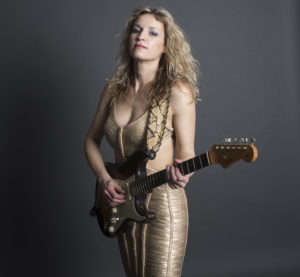
“The music business, just as any career driven type of work, tends to underestimate the importance of having equal number of successful women around,” Popović shared.
“One way or another, as a woman, you will come to a hard bridge to cross, meaning you’ll have to fight for a basic right to survive in a male dominated world. You need to find the way to deal with macho arrogance and macho behaviors, and be ready to fight for your ideas and for your career.
“Obviously not all men in the music business are those men. Many of them are very supportive of their female colleagues, but some – producers, record companies, band members… will make it difficult for you on your way to realizing your dream.”
Since fronting her own band in the 1980s, Janiva Magness has carved out an impressive career, which includes over a dozen albums, 26 Blues Music Award nominations (with seven wins, including BB King Entertainer of the Year), and a 2017 Grammy® nomination. And yet, the “boys club” mentality has not spared her.
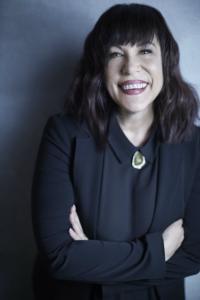
“I was at a new peak in my career in terms of recognition as a Blues artist and it was a very exciting time,” Magness told ABS.
“I was at a high profile cocktail party filled with artists and industry folks all the way from media, attorneys, talent buyers and record company presidents and staffers. As several of us are standing in a circle talking, networking and having great conversations, this one particular man loudly blurts out ‘REALLY NICE TITS!’ as he is grinning and looking directly at my breasts.” While Ms. Magness handled the situation with strength and poise, the situation was not isolated.
“What is important to try to understand,” she continued, “is that a LOT of these kind of incidents and practices on the part of people in the business vary, from blatant to dismissive to subtle. When you take one incident… Well, it is one incident. When you collect them over the course of a career and say them out loud, one after the other…
Now that is flat out ugly and sadly a reflection of the climate for women in the music business overall.”
Are women fairly represented in the roots genres? What do the numbers of women represented by management and on stages look like?
According to the Intrepid Artists website, the company actively represents thirty six acts. Six are women or female-fronted bands, which works out to 17%. According to Booth, that is about the average female-to-male ratio across the board.
According to broader statistics, Intrepid may in fact be progressive in the percentage of women it represents.
Los Angeles-based concert promoter Martin Fleischmann offers, “A quick, informal assessment of touring acts at that level, (headliners and support bands) showed that acts led by, or dominated by, women make up about 12% to 15% of current talent on the road.”
The relatively small percentage of female artists may have an effect on their ability to book venues, both large and small. “The National Women in Blues came to be because of a four day festival with 55 booked bands — only four of which had women fronting,” Seidman told us. “The mentality that booking 1 woman at a festival that will run for days is all too prevalent. Thankfully, over the last 3-4 years this is changing a little at a time.”
Magness agreed. “I believe this to be true,” she said. “Simply because if you look at billings and how may women there are working consistently versus how many men, it makes a pretty clear picture.”
“I do believe these days more women are being booked at festivals than they have been in the past,” Intrepid’s Rick Booth observed.
“I also believe women are more respected these days than in the past,” he added. “Different kinds of blues, obviously, sell differently. I represent more contemporary blues, and the women that I represent are amazing artists that deserve to be seen and heard. The fact that there are fewer of them, sometimes works in their favor. Some of my female artists have been paid more at venues than their male counterparts because they’re more unique and rare.”
“When it comes to booking festivals, it all depends on the artists’ ticket sales, and their popularity,” says Booth. “The cream will always rise to the top, be it male or female.”
Whether or not the blues is showing signs of progressiveness in this department, statements from those in position of power in the greater music industry, coupled with hard statistics, reveal less advancement industry-wide.
A post-Grammy® outrage ensued when Vogue Magazine quoted Recording Academy President Neil Portnow as saying, “It has to begin with… women who have the creativity in their hearts and souls, who want to be musicians, who want to be engineers, producers, and want to be part of the industry on the executive level… [They need] to step up because I think they would be welcome.”
His remarks came after being asked why so few women were nominated in other than specifically female categories.
“Watch main stream awards, then compare to awards in the blues world,” Seidman pointed out. “Look at the percentages — or how often the people that do these awards defend it, saying there are not many women out there. There are many amazing women on guitar, harp, drums, bass, horns, keys, etc. Look across the board at all the different blues awards that exists and how few women get nominated other than in the ‘female categories’.”
With that suggestion, we took a look at the percentages…
The Grammys® bills itself as an indicator of professional success for musicians, so it seems a natural starting place.
In 60 years of Grammy Awards, there have been 1,930 male nominees and winners, 411 female nominees, and 113 female winners. Women represent 23% of all Grammy wins.
But from 2013-2018, 9.3% of Grammy nominees were female and over 90% were male.
In the “Album of the Year” category, there have been 21 female winners in 60 years — roughly one woman wins Album of the Year every three years. There were eleven years in the Grammys’ 60-year history where women were not even nominated for this category.
The number of women winners and nominees in non-performance and technical Grammy Awards like songwriting, and especially production, were abysmal.
In the blues, merely four women have won six combined Grammy Awards across any blues music category in it’s entire 35 years. Of those, only two, Etta James and Irma Thomas, won three Grammys for their own works, (Etta won twice). Koko Taylor, Bonnie Raitt and Susan Tedeschi each won as duets or part of a group. Koko was on a compilation, Bonnie was a duet with John Lee Hooker, and Susan won as part of the Tedeschi Trucks Band.
We also explored the Blues Music Awards. 2018 features a total of 9 women artists or female-fronted groups nominated in other than gender specific categories, out of a total of 104 nominees, bringing the percentage of women to just under 10%.
As one year is not an accurate statistic, we ran the Blues Music Awards for the last decade, since 2007.
For this, we only counted the BMAs non-gender-specific marquee awards, and made some key distinctions: Female co-fronted, such as for the Tedeschi Trucks Band’s extraordinary number of entries, were counted towards both men and women. Male & female co-written were also counted for both. The number of male musicians wasn’t counted. So for example, a trio of male songwriters would be counted as one male entry, and a trio of women as one entry for women, however, a male/female co-written song nomination would each count once towards their respective genders.
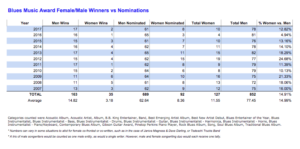
As Seidman had pointed out, one place where women did appear to be under-represented was the musician categories.
Out of a total of 198 BMA wins in the last ten years, women accounted for 35 wins, or about 17.7%. As Mr. Booth and Mr. Fleishmann indicated, this is number is very close to the percent of women touring professionally in this genre.
In other words, the past decade of Blues Music Awards wins appear to indicate women are reasonably adequately represented. The same cannot be said for the industry at large. Yet.
A Change Is Gonna Come…
The issue of gender bias also barely scratches the surface of racial under-representation and inequality in the industry. To be a woman in music is often to be under-represented. To be a woman who is not white in music, to borrow a phrase from the King of the Blues, “is like being black twice”.
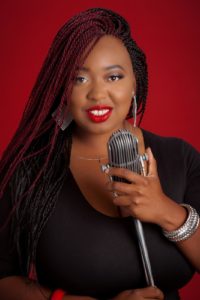
In a recent interview, Annika Chambers told us that she was surprised to be twice nominated for the Koko Taylor Award.
“It was a little weird when I got this nomination,” Chambers shared, “only because I wasn’t aware that people saw me as traditional. In fact, I wasn’t aware I was even on the radar.”
“Like many of my friends, I would love be on stage at more festivals,” she continued. “It seems that black artists receive much love in Europe. I’m very accepted and loved at European festivals. I’d like to feel that in my own country.
“Many of my friends are black blues artists and it seems as though we have to package ourselves together. When seeing a festival lineup, and there are only a few women, many times those women are white. Although I’m glad to see women represented, I’d also like to see more women of color. We’d like to be represented on those stages as well. I mean, blues is our thing after all.”
Other women of color we spoke to and heard from echo Ms. Chambers’ sentiments. Due to it’s disproportional impact on the livelihoods of nearly all women of color, the issue of racial inequality in music is arguably even more dire than the wider issue of sex. Not only does it deserve its own analysis and article — it deserves it’s own national conversation.
The record companies do appear to be signing female artists at a growing rate, or at least in keeping with the amount of male artists that they sign.
“Look at some of the major blues labels,” Booth commented. “Alligator Records, Mascot/Provogue, Ruf Records, they’re all looking for the next big thing. While only one of these companies has a number of women on their current roster. I will say Ruf Records seems to go out of their way to sign and promote female artists. While that may not be the norm, I do think it’s all about record sales and strong touring schedules… They are going to sign artists that are going to sell records. Again, the cream will always rise to the top.”
Was Valenti’s rejection, then, a random one-off from the norm? Absolutely not. Are things beginning to improve for women artists? That remains to be seen. However, advocates in several positions are fighting for the female voice to be heard, and waves of recent news about gender inequality are opening the door for conversation and introspection.
In her position with Women in Blues, Seidman says, “Many who we deal with in our organization love the fact that ‘we’ play the bad guy on their behalf. Women are often scolded for speaking up for themselves. Many get told they are making things up or blowing things out of proportion. This leads to fewer bookings and lower negotiations. So, the women often try to keep it to themselves… They fear losing gigs or radio spins for speaking up against the bias.”
Fleischmann, as a promoter, concurs. “The bottom line is we men, in our respective positions, need to step up and make sure those who are worthy and who are not getting the benefits of the established system have the opportunity to develop their talents to the point this conversation is no longer necessary. You can call that affirmative action, socialism, whatever you want, I don’t care. And those that don’t agree…can take a long jump off a short pier!”
And it appears a tide of opportunity is growing for women in music. In a very recent development, Far Out Magazine reported that “Forty-five international music festivals have pledged a 50/50 gender-equal lineup split by 2022.”
The PRS Foundation, UK’s leading funder of new music and talent development, spearheaded the movement with their International Keychange Initiative. Music festivals all over Europe and Canada have taken the pledge as well as A2IM Indie Week, and the NYC Winter Jazzfest in the U.S.

“I remain utterly outraged by the depressing statistics surrounding female representation in every aspect of the global music business,” said Garbage frontwoman Shirley Manson.
“We are doing a great disservice, not only to women of all races and socio-economic backgrounds but to all genders, culture and society in general by allowing the status quo to continue.”
PRS Foundation CEO Vanessa Reed stated, “we have an opportunity to respond and commit to tangible change in music… I hope that this will be the start of a more balanced industry which will result in benefits for everyone.”
“Change is difficult but necessary,” added Janiva. “The only people who are surprised about these recent unveilings seem to be the ones in denial about their own behaviors or people wearing blinders. Most women I know are not surprised at all. The old practices in many ways are dying off…
Improving the business climate for women improves the climate for all. You know, when the tide comes in, all the boats float.”
Please, share your stories, discussion and comments on this important subject! We urge our readers, particularly those working in the music industry to comment below. Keep it civil, we’re all in this together.


